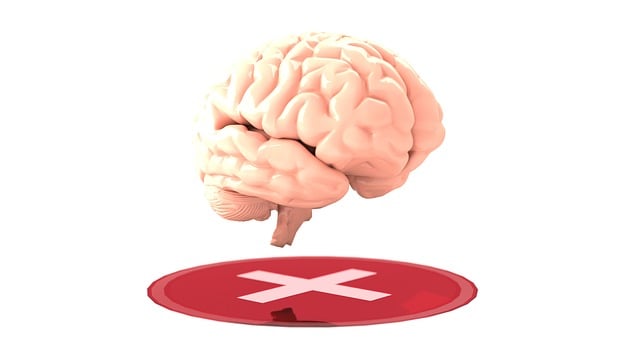Substance abuse is a complex issue often linked to underlying mental health conditions like ADHD, requiring comprehensive evaluations and tailored therapy. Early detection through superior ADD-ADHD assessments is key to preventing abuse by addressing impulsivity and emotional challenges. Evidence-based strategies, including therapy focusing on emotional healing and coping skills, reduce risks. Integrating these approaches into podcasts, aftercare programs, and community outreach enhances recovery for individuals with co-occurring ADHD and substance abuse disorders.
Substance abuse poses significant risks, but understanding and addressing underlying conditions like Attention Deficit Disorder (ADD) or Attention Deficit Hyperactivity Disorder (ADHD) can significantly reduce these dangers. This article explores a comprehensive approach to mitigating substance abuse risks, including evaluating and diagnosing ADD/ADHD for tailored therapy, implementing evidence-based strategies for risk reduction, and fostering long-term support systems. By focusing on superior ADD-ADHD evaluations therapy, we aim to empower individuals on the path to recovery and prevent future abuses.
- Understanding Substance Abuse and Its Risks
- The Role of ADD/ADHD in Substance Abuse
- Evaluating and Diagnosing ADD/ADHD for Better Therapy
- Evidence-Based Strategies for Risk Reduction
- Long-Term Support and Prevention Systems
Understanding Substance Abuse and Its Risks

Substance abuse is a complex issue that goes beyond occasional missteps or weak moments. It’s a recurring pattern of using substances, such as alcohol or drugs, despite negative consequences on one’s health, relationships, and overall well-being. This behavior often stems from underlying factors like stress, trauma, or undiagnosed mental health conditions. For individuals struggling with ADD/ADHD, who may already face challenges with impulsivity and focus, the risk of substance abuse is heightened.
Understanding these risks is crucial for implementing effective prevention strategies. Superior ADD-ADHD evaluations can play a pivotal role in identifying co-occurring disorders early on. Through comprehensive therapy sessions focusing on emotional healing processes, mental health professionals can guide individuals through coping skills development to manage stress and impulses healthily. A thorough risk assessment tailored to each person’s unique circumstances is essential for devising a robust strategy to steer clear of substance abuse pitfalls.
The Role of ADD/ADHD in Substance Abuse

Many individuals struggling with substance abuse also live with Attention Deficit/Hyperactivity Disorder (ADHD). This co-occurrence often goes undiagnosed, exacerbating existing challenges and increasing vulnerability to addiction. Superior ADD-ADHD evaluations are crucial in identifying these underlying conditions, as they provide a comprehensive understanding of an individual’s unique cognitive profiles.
Through evidence-based practices and tailored interventions, such as those centred around Mind Over Matter principles, therapy can effectively address both ADHD symptoms and substance abuse. Mental wellness coaching programs developed through careful consideration of these dual challenges can empower individuals to navigate their mental health journeys with enhanced coping mechanisms and improved overall mental wellness. The integration of these strategies within the context of a well-produced Mental Wellness Podcast Series can further support recovery and promote lasting positive outcomes.
Evaluating and Diagnosing ADD/ADHD for Better Therapy

Evaluating and diagnosing Attention-Deficit/Hyperactivity Disorder (ADHD or ADD) is a crucial step in ensuring superior therapy outcomes for individuals struggling with substance abuse. This process involves comprehensive assessments by qualified healthcare professionals who employ advanced tools to pinpoint specific symptoms and their impact on daily life. By integrating these evaluations into treatment plans, therapists can tailor interventions to address the unique challenges faced by each client.
Accurate diagnosis fosters a more personalized approach to therapy, promoting positive thinking and inner strength development. Recognizing ADHD’s role in substance abuse encourages targeted strategies that go beyond symptoms management; they encompass public awareness campaigns development, behavioral modifications, and cognitive-behavioral therapies. This holistic perspective enhances the effectiveness of treatment, empowering individuals to overcome their addiction and lead fulfilling lives.
Evidence-Based Strategies for Risk Reduction

In the realm of substance abuse prevention, evidence-based strategies are paramount to effective risk reduction. Superior ADD-ADHD evaluations play a crucial role in this context by identifying individuals at heightened risk, allowing for tailored interventions. Early detection through comprehensive assessments enables access to specialized therapy options, such as those focusing on emotional regulation and mood management. These therapeutic approaches, backed by robust research, aim to address underlying conditions that may contribute to substance abuse.
Implementing evidence-based practices also requires healthcare provider cultural competency training. Understanding the diverse needs of various populations fosters more effective care. By integrating this knowledge into risk reduction strategies, professionals can better serve individuals from different cultural backgrounds. This inclusive approach ensures that emotional regulation techniques and mood management support are accessible and culturally sensitive, enhancing overall program effectiveness.
Long-Term Support and Prevention Systems

Long-term recovery from substance abuse often requires ongoing support and robust prevention systems. Beyond initial treatment, individuals can benefit from structured aftercare programs that offer continuous guidance and a sense of community. These programs, often incorporating elements like group therapy, peer support groups, and specialized addiction counseling, create a network of support that helps prevent relapse.
Community outreach program implementation plays a crucial role in this process by offering resources and education to at-risk individuals. By fostering empathy building strategies and promoting healthy coping mechanisms, such programs can empower people to make informed choices about their well-being, particularly in managing stress. Additionally, the integration of superior ADD-ADHD evaluations and therapy within these systems ensures a more personalized approach, addressing any co-occurring disorders that may complicate recovery.
In addressing substance abuse, understanding its risks and the unique role of ADD/ADHD is paramount. By integrating evidence-based strategies for risk reduction and providing long-term support through robust prevention systems, we can significantly mitigate harm. Superior ADD-ADHD evaluations and therapy play a pivotal role in this process, ensuring tailored interventions that address both substance abuse and coexisting conditions effectively. Together, these steps foster healthier individuals and communities.













